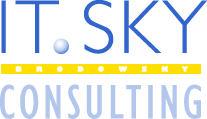- In-Depth Portfolio of Technologies
- Java
- Perl
- Ruby
- Scala
- Clojure
- Linux
- Databases
- Combinations of Technologies
- Security Savviness
In-Depth Portfolio of Technologies
Operating Systems
-
Linux, UNIX (SunOS, Solaris, Aix)
Linux is a very popular server system and accounts for a large portion of all web servers. However, Linux technologies are also used in desktop systems and particularly in cell phone software (e.g. Android). - MSWindows (MSWindows 10, MSWindows 7, MSWindows XP, MSWindows XP embedded, cygwin)
Programming Languages
-
Scala & Akka
Scala lends itself to high-performance applications, especially in combination with the Akka framework. Moreover, it enables programmers to write very dense yet readable code thanks to the elimination of "white noise" caused by boilerplate code snippets.
-
Java: JSE (J2SE), JEE (J2EE), JMS, EJB, JSF, Servlets, Camel, Karaf, Fuse, Wildfly, Seam, JSP, RMI, JDBC, Hibernate, JPA, JUnit, TestNG, Swing, AWT, JasperReports, JMX, BSF, ant, maven, IntelliJ, Eclipse, JProfiler
Many applications nowadays are developed using Java. For some years now, it has also been possible to develop high-performance server application with this technology.
-
Clojure
Lisp reborn for the JVM, a very functional language
-
Other languages for Java VM: Clojure (see above), Groovy, Scala (see above), jRuby (see below)
By now, Java VM is offering many appealing alternatives to Java itself, even though they still run on the same platform.
-
Ruby: Ruby (up to 2.7), JRuby, machine-oriented functions for Win32 and Linux, Rails, integration of JRuby in Java
Ruby has long been popular for allowing users to develop complete applications in no time. Beyond that, combining Ruby or JRuby with Java opens a world of possibilities to call machine-oriented functions and manipulate features so that they can be configured.
-
Perl: Perl 5 (up to 5.32), Raku (former Perl 6), OO, CGI, DBI, Unix API, regular expressions
Among other things, Perl lends itself to the handling of small tasks and everything related to the editing of text files or text data. - HTML, XHTML, CSS, JavaScript, XML
- C: including Unix API, Oracle ProC
- Unix Shells: sh, bash, tcsh, ksh
- Lisp: Common Lisp, EmacsLisp, DSSSL, Clojure
- Assembler, Fortran, C#, Lua, C++
Databases
Most larger-scale applications use databases, e.g. Oracle, PostgreSQL or mySQL for a convenient way to store and access data.- Oracle: SQL, SQL*Plus, ProC, JDBC, PL/SQL
- PostgreSQL, mySQL, DB2, MSSQLServer
- MongoDB
- CassandraDB
Miscellaneous
- Application servers: Jboss, Oracle WebLogicServer, WildFly, Fuse
- Network: TCP/IP, HTTP, HTTPS, Samba, LDAP, ssh, GSM
- Sourcecodemanagement: Git, SubVersion
- Design Tool (UML): Rational Rose, Together, Sparx Enterprise Architect, Astah
- Approaches: OOP, OOD, OOA, UML
- Cryptography, coding theory
- Secondary skills include: LibreOffice, MSOffice, MSProject, TeX/LaTeX, Emacs
Additional Skills
-
Combination savviness
When you're after the optimal solution, tapping into in-depth knowledge of a large variety of technologies puts you ahead of the game, since the magic often lies in the clever mix and match. -
Security savviness
Security is a key aspect of today's IT, and much effort is put into guaranteeing the greatest possible extent of it particularly on the network side of things. However, it is equally important to take security aspects into account while designing the architecture and developing applications.
IT Sky Consulting GmbH
Tannwaldstrasse 26
4600 Olten
Switzerland
Phone: +41 79 2704802
info@it-sky-consulting.com
Tannwaldstrasse 26
4600 Olten
Switzerland
Phone: +41 79 2704802
info@it-sky-consulting.com
